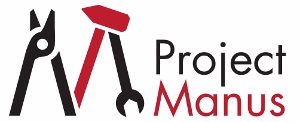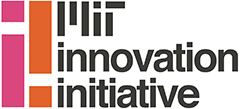
Project Manus was initiated in October 2015 by Provost Martin Schmidt. Our mandate is to create the gold standard in next generation academic makersytems. The effort is led by MIT Professor, Martin Culpepper, and is housed within MIT's Innovation Initiative. There are three phases. Phases 1 and 2 run through spring 2017, after which phase 3 begins:
- Solutions: Develop modifications that will transform our makerspaces (over 120,000 ft2) into the 'gold standard' for next generation academic makerspaces.
- Implementation: Implement solutions to upgrade legacy spaces and integrate the new MET makerspace (20,000 ft2) with the legacy spaces.
- Long-term: After phase 2, MIT will have over 45 major makerspaces that occupy more than 150,000 ft2. Project Manus is slated to become the MIT office that will see to the continued function and evolution of these spaces.
Phase I programs include:
Mobius - MIT has over 45 major makerspaces that make up MIT's makersystem! Mobius will be our students' one-stop-shop 'window' into that system. The Mobius mobile app enables students to find the resources they need, pay for materials/usage fees, demonstrate training credentials and schedule use of resources. Mobius will be launched at MIT in March 2016.
Mega Makerspace - MIT is investing in a new, 20,000 ft2 state-of-the-art makerspace. Project Manus is leading the design, layout and programing of this space.
Maker Safety - We are working with MIT's EHS office to review and adapt MIT's policies, procedures and training standards so that we maintain a high level of safety within makerspaces while providing broader and more rapid student access to maker resources.
Makerspaces 101 - Project Manus is leading an effort in partnership with peer institutions (Stanford, Berkeley, Georgia Tech, Yale, CMU, CWRU, Olin) to create the 1st guide book for academic makerspaces. The book will cover best practices/processes for creating and running academic maker spaces.
Maker Training - Our student makers/entrepreneurs need fast access to maker resources, but they must be trained and safe prior to accessing makerspaces. We are implementing tiered training program, where our staff feels it makes sense. Tiered training breaks the 'many tools at once' (MTO) approach (often used in universities) into several smaller sessions.
- Basic maker training - Training on general makerspace safety/conduct and safe use of hand tools.
- Digital fabrication training - Training on low-risk equipment such as 3D printers, laser cutters, routers, waterjet cutters and some benchtop machines.
- Tool-specific training - Training on more advanced tools may be scheduled on a one-by-one basis.
Tiered training will fill the need of providing faster access to some maker resources, in some cases 25X faster than before. Stay tuned for more details on MIT's innovative MakerLodge coming in the Fall of 2016.
Maker Mentors - MIT students are keen to help each other learn to make. Through this program, students will be trained in good mentoring practices, and in some cases, certified to oversee the work of their peers and training peers on some equipment.
Maker Metrics - How do you know a makerspace is working? You need metrics to assess them. Project Manus is developing the metrics that can be used to understand how effective a makerspace is, relative to its goals and the resources it utilizes.
Maker Measure - A login system that enables our makerspaces to quantify usage/traffic, what's being made in them, the types of activities within them, and the demographics of users. This data will be used to continually improve the spaces and inform future decisions to enhance the maker capacity across MIT.
MakerBucks - Your average "maker bear" MIT student spends around $150 per year on making. The MakerBucks program will provide each student with credit that they will be able to use to pay for materials and machine time in the various makerspaces across campus.







